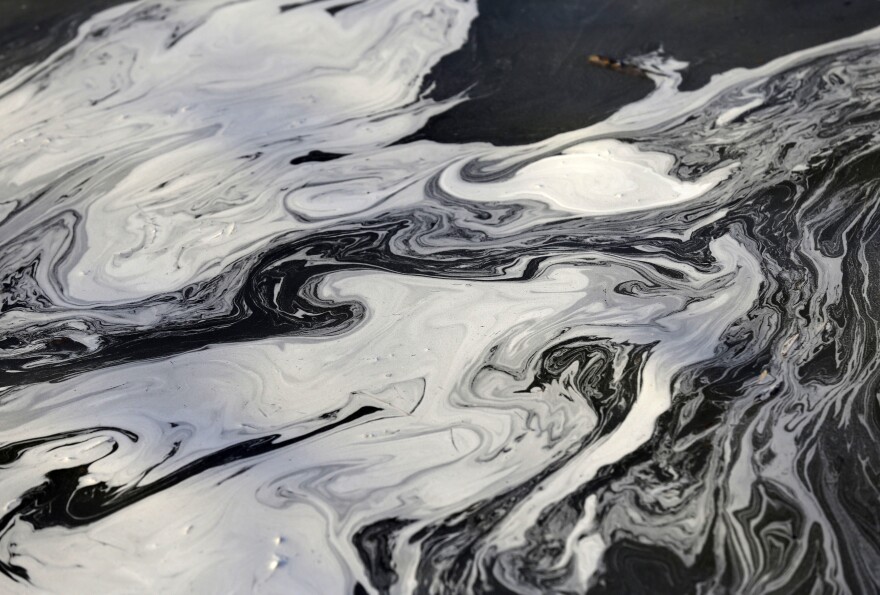Updated at 6:30 p.m.
The Environmental Protection Agency has proposed relaxing two Obama-era regulations on waste products from coal-fired power plants, a move environmental groups say would prolong the risk of toxic spills or drinking water contamination.
The agency wants to ease restrictions on coal ash — the solid residue left over from burning coal — and wastewater from coal plants. In the rule changes announced Monday, plants could have up to three more years to close unlined coal ash ponds, which can leak contaminants into surrounding groundwater.
It's the latest in a series of moves the Trump administration has taken to try and help the country's ailing coal industry.
"These proposed revisions support the Trump administration's commitment to responsible, reasonable regulations by taking a commonsense [sic] approach, which also protects public health and the environment," EPA Administrator Andrew Wheeler said in a statement.
The utility industry lauded the proposed changes.
"The electric power industry is working to close coal ash basins in ways that put safety first, protect the environment, minimize impacts to communities, and manage costs for customers," said Jim Roewer, executive director of the Utility Solid Waste Activities group, in an email. He also thanks EPA for "recognizing the technical challenges of meeting the deadline," and praised a measure that would allow for "site-specific deadline extensions."
Environmentalists said the rules would simply allow utilities to pollute for longer.
"Instead of having a single strong national set of public health protections for this polluting industry, we are going to be left with federal regulations that are riddled with loopholes," said Tom Cmar, an attorney with the environmental group Earthjustice.
Coal ash is a powdery residue laced with heavy metals like arsenic, lead, and mercury. The rules governing it were spurred by a catastrophic coal ash spill in 2008, in Tennessee, that dumped millions of cubic yards of toxic slurry into nearby rivers.
Under a rule finalized in 2015, all unlined coal ash ponds were to begin closing in 2018. The Trump administration's rewrite would allow some of these plants up to five more years before they begin shutting down these facilities.
Last year, a report from the Environmental Integrity Project found coal ash pollution was leaking into groundwater at over 200 power plants nationwide. It found over 90% of sites that store coal ash are leaking levels of contamination exceeding EPA health standards.
At one former coal plant near Pittsburgh, arsenic levels in the groundwater are 372 times EPA's safe drinking water standards, though the report found no evidence that public drinking water supplies had been affected.
The report was based on data made available by the 2015 coal ash rule. The latest rollbacks would leave those reporting requirements in place.
The EPA also announced changes to a 2015 rule overseeing the discharge of coal plant wastewater. That proposal would relax some limits on the amount of pollutants allowed in wastewater, and let more of it be discharged. The EPA says newly developed technologies allow companies to take harmful materials out of the waste stream.
The EPA says the rule change would save $175 million in compliance costs to industry, and that a voluntary incentive program could prevent the discharge of about 105 million pounds of pollutants a year.
At the time it was created, the 2015 wastewater rule was expected to affect about 12% of coal-fired power plants, and keep 1.4 billion pounds of toxic metals and other pollutants out of rivers and streams. It was projected to cost industry $480 million a year, but save the public roughly the same in benefits, including from lowered health costs.
After several legal challenges to the rule, the EPA in 2017 postponed its implementation until 2020.
Copyright 2021 The Allegheny Front. To see more, visit . 9(MDAxNzg0MDExMDEyMTYyMjc1MDE3NGVmMw004))







